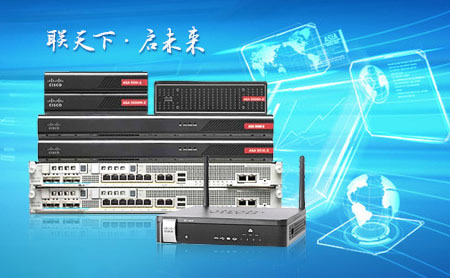CISCO思科品牌怎么样 申请店铺
外推网助力CISCO思科品牌出海!将品牌入驻外推网,定制CISCO思科品牌推广信息,可以显著提高CISCO思科产品曝光,简直是跨境电商爆单神器!目前仅需1000元/年哦~

思科公司是全球领先的网络解决方案供应商。今天,网络作为一个平台成为了商业、教育、政府和家庭通信不可或缺的一部分,思科的互联网技术正是这些网络的基础。
全球业务发展
思科公司是美国最成功的公司之一。1984年由斯坦福大学的一对教授夫妇创办,1986年生产第一台路由器,让不同类型的网络可以可靠地互相联接,掀起了一场通信革命。思科公司每年投入40多亿美元进行技术研发。过去20多年,思科几乎成为了“互联网、网络应用、生产力”的同义词,思科公司在其进入的每一个领域都成为市场的领导者。
1990年上市以来,思科公司的年收入已从6900万美元上升到2008财年的395亿美元。目前,思科公司在全球范围内的员工超过了65,000名。在2009年《财富》美国500强中排名第57位,并第8次当选《财富》全球最受尊敬的企业。思科公司还获得了“2008年全球品牌百强”第17名的殊荣。
思科公司目前拥有全球最大的互联网商务站点,公司全球业务90%以上的交易是在网上完成的。思科坚信:互联网将改变人们的工作、生活、学习以及娱乐的方式,并且让诸多领先企业与合作伙伴成为“全球网络经济”模式的受益者。在《财富》全球500强企业中,已有包括沃尔玛(Wal-Mart)、埃森克美孚(ExxonMobil)等300多家企业成为思科的成功客户,分享了思科的最佳实践经验。
植根中国本土
思科于1994年进入中国市场,目前在中国拥有员工超过3400人,分别从事销售、客户支持和服务、研发、业务流程运营和IT服务外包、思科融资及制造等工作领域。思科在中国设立了16个业务分支机构,并在上海建立了一个大型研发中心。
2005年10月,思科上海研发中心正式启用,这将进一步增强思科公司定制化产品的能力,以满足中国、亚洲乃至于全球电信运营商不断变化的需求。
2006年5月,为了响应中国市场不断提升的网络服务需求,对本地客户提供更加全面和直接的支持,思科系统(中国)信息技术服务有限公司在北京成立。该公司专注于为中国客户提供全面的网络生命周期服务,帮助用户对网络进行规划、设计、实施、运营和优化,以成功部署和使用网络技术。
2006年11月,思科系统(中国)融资租赁有限公司正式成立,这在满足客户网络技术需求的同时,将帮助客户更好地管理其现金与资产,采用创新、灵活的金融解决方案。
2007年11月1日,思科公司董事会主席兼首席执行官约翰?钱伯斯(JohnChambers)访华,宣布创新及可持续发展成为思科在华发展战略重点。思科公司为此计划未来三至五年内在中国承诺投入160亿美元,其中包括本地采购方面的显著提升,并增加在教育、思科融资租赁、研发、直接和间接投资以及销售和服务运营等方面的投入。
2008年4月16日,思科董事会主席兼首席执行官约翰?钱伯斯再次访华,在北京宣布了思科在中国的下一阶段公司发展战略和蓝图。作为“创新及可持续发展”战略的重要一步,思科将继续加强与中国政府和产业的合作,并与中国在经济、社会及环境等各个层面的发展目标相契合。在钱伯斯访华期间,思科与国家发展和改革委员会及商务部分别签署合作备忘录,包括加大在研发、教育、采购、投资和培训等方面的投入。
同时,思科公司投入2000万美元与北京大学合作成立光华—思科领导力研究院,这是思科公司在全球范围内首次与教育机构共同打造的国际化学术交流平台,面向政府及企业的高层管理人员,为中国培养出更多国际化的现代管理人才。
2008年5月四川发生历史罕见的大地震后,思科迅速行动,很快地确定了在未来三年内提供总预算至少三亿元人民币针对教育与医疗的援助方案。思科将与政府和产业通力合作,打造以协同互联的信息通信技术为依托的面向21世纪的教育和医疗模式。借助21世纪的互联技术,缩小城乡差距,更广泛地分享教育和医疗领域的公共资源。
除了技术研发和业务推进,思科还致力于激发中国本土的创新文化,思科已经针对中国本土的多家企业投入了7亿美元,并将在未来五年增加3.5亿美元相应投入。同时,思科公司也十分重视帮助中国教育和培养网络人才,到2011年,思科将在众多高等职业学院中新增300所思科网络技术学院,参与思科网络技术学院培训的学生总数将新增10万人。2009年,思科系统(中国)公司第三次获得由北京大学管理案例中心和《经济观察报》颁发的“年度中国最受尊敬企业”奖项。此外,思科连续四年获得21世纪报业集团评选的“年度中国最佳企业公民”大奖。
2010年1月,思科宣布将把亚太区及日本区重新划分为三个大区,以更好地促进该地区各市场的战略制定和资源投入。作为原亚太区组成部分的中国内地、香港和台湾,将组成独立的思科大中华区。鉴于中国经济发展的规模和增长速度,以及思科对中国业务的重视程度,单独设立大中华区是思科中国战略的又一重大举措。
Cisco is the world's leading provider of network solutions. Today, as a platform, network has become an indispensable part of business, education, government and home communication. Cisco's Internet technology is the foundation of these networks. Global business development Cisco is one of the most successful companies in the United States. Founded by a professor and his wife from Stanford University in 1984, the first router was produced in 1986, which enabled different types of networks to reliably connect with each other, and set off a communication revolution. Cisco invests more than $4 billion annually in technology research and development. In the past 20 years, Cisco has almost become the synonym of "Internet, network application, productivity". Cisco has become the market leader in every field it enters. Since its IPO in 1990, Cisco's annual revenue has increased from $69 million to $39.5 billion in fiscal 2008. Currently, Cisco employs more than 65000 people worldwide. Ranked 57th in the Fortune 500 in 2009, and was elected the most respected enterprise in the world for the 8th time. Cisco also won the 17th prize of "2008 top 100 global brands". Cisco currently has the largest Internet business site in the world, and more than 90% of its global business transactions are completed online. Cisco firmly believes that the Internet will change the way people work, live, study and play, and make many leading enterprises and partners the beneficiaries of the "global network economy" model. Among the Fortune Global 500 companies, more than 300 companies, including Wal Mart and ExxonMobil, have become successful customers of Cisco, sharing the best practice experience of Cisco. Rooted in China, Cisco entered the Chinese market in 1994. At present, it has more than 3400 employees in China. They are respectively engaged in sales, customer support and service, R & D, business process operation and it service outsourcing, Cisco financing and manufacturing. Cisco has 16 branches in China and a large R & D center in Shanghai. In October 2005, Cisco Shanghai R & D center was officially launched, which will further enhance the ability of Cisco's customized products to meet the changing needs of China, Asia and even global telecom operators. In May 2006, in order to respond to the increasing demand for network services in the Chinese market and provide more comprehensive and direct support to local customers, Cisco Systems (China) Information Technology Service Co., Ltd. was established in Beijing. The company focuses on providing comprehensive network life cycle services for Chinese customers, helping users plan, design, implement, operate and optimize the network to successfully deploy and use network technology. In November 2006, Cisco Systems (China) Financial Leasing Co., Ltd. was officially established, which will help customers better manage their cash and assets and adopt innovative and flexible financial solutions while meeting their network technology needs. On November 1, 2007, John Chambers, chairman of the board of directors and chief executive officer of Cisco, visited China and announced that innovation and sustainable development have become the focus of Cisco's development strategy in China. For this purpose, Cisco plans to commit us $16 billion in China in the next three to five years, including significant improvement in local procurement, and increased investment in education, Cisco financial leasing, research and development, direct and indirect investment, sales and service operations. On April 16, 2008, John Chambers, chairman and CEO of Cisco board of directors, visited China again and announced Cisco's development strategy and blueprint for the next stage in China in Beijing. As an important step of the "innovation and sustainable development" strategy, Cisco will continue to strengthen cooperation with the Chinese government and industry, and meet China's development goals at all levels of economy, society and environment. During chambers' visit to China, Cisco signed a memorandum of cooperation with the national development and Reform Commission and the commercial sector, including increasing investment in R & D, education, procurement, investment and training. At the same time, Cisco invested 20 million US dollars to establish Guanghua Cisco Leadership Research Institute in cooperation with Peking University. This is the first international chemistry exchange platform jointly built by Cisco and educational institutions in the world. It is aimed at senior managers of governments and enterprises, and cultivates more international modern management talents for China. After a rare earthquake in Sichuan in May 2008, Cisco quickly decided to provide a total budget of at least 300 million yuan for education and medical assistance in the next three years. Cisco will work together with the government and industry to build an education and medical model for the 21st century based on the collaborative and interconnected information and communication technology. With the help of Internet technology in the 21st century, we will narrow the gap between urban and rural areas and share more public resources in the fields of education and health care. In addition to technology R & D and business promotion, Cisco is also committed to stimulating innovation culture in China. Cisco has invested $700 million in a number of enterprises in China, and will increase investment by $350 million in the next five years. At the same time, Cisco also attaches great importance to helping China educate and cultivate network talents. By 2011, Cisco will add 300 new Cisco network technology colleges among many higher vocational colleges, and the total number of students participating in the training of Cisco Network Technology College will increase by 100000. In 2009, Cisco Systems (China) won the "most respected enterprise of the year" award from Peking University Management Case Center and Economic Observer for the third time. In addition, Cisco has won the "China's best corporate citizen of the year" award of 21st century newspaper group for four consecutive years. In January 2010, Cisco announced that it would divide Asia Pacific and Japan into three regions to better promote the strategic development and resource investment of each market in the region. As a part of the original Asia Pacific region, mainland China, Hong Kong and Taiwan will form an independent Cisco Greater China region. In view of the scale and growth rate of China's economic development, as well as Cisco's emphasis on China's business, the establishment of Greater China region alone is another significant measure of Cisco's China strategy.
本文链接: https://brand.waitui.com/cd1e7da84.html 联系电话:请联系客服添加 联系邮箱:请联系客服添加


















 浙公网安备 33011802001999号
浙公网安备 33011802001999号
